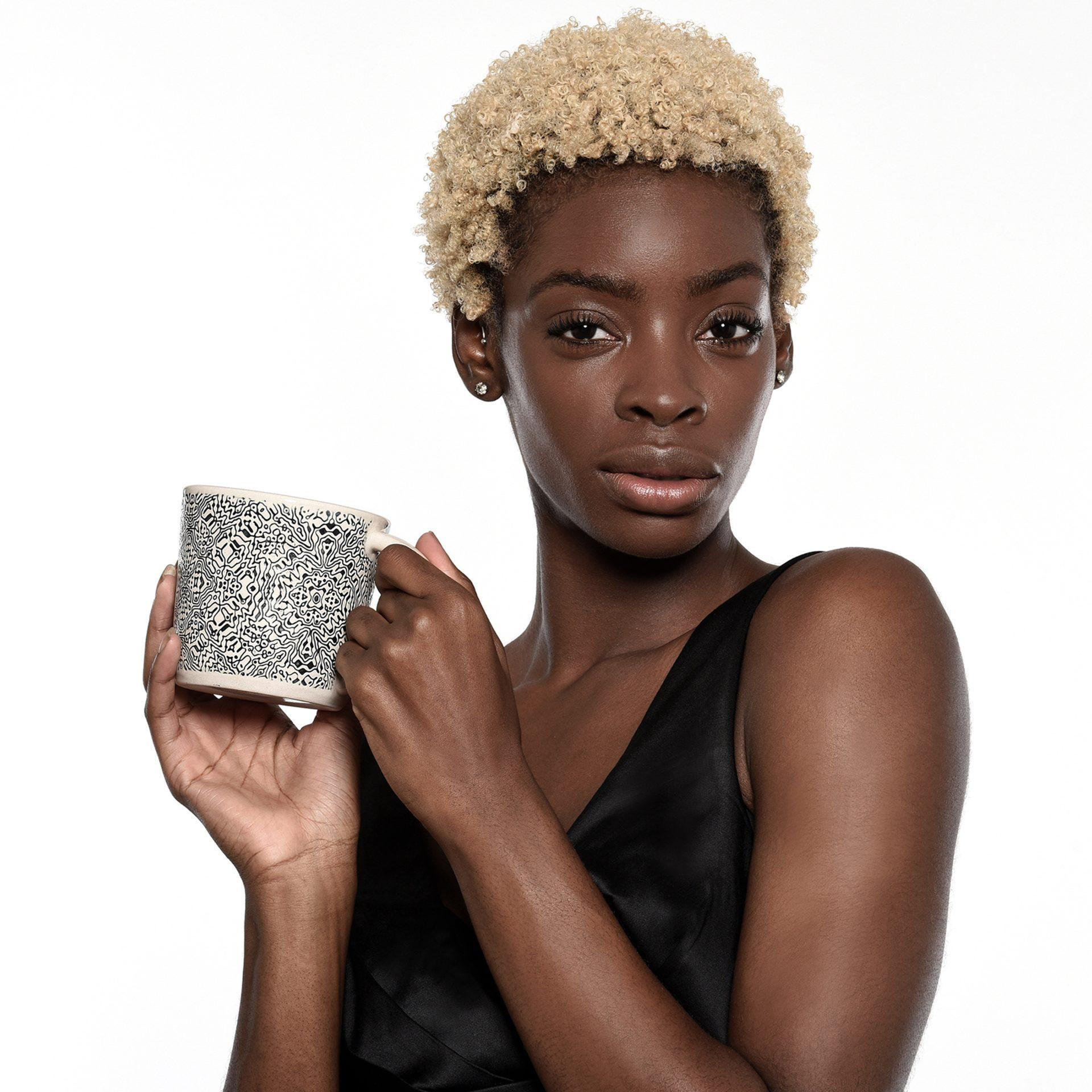Aging gracefully is a journey of resilience, positivity, and proactive lifestyle choices. It’s a voyage that cultivates longevity, cherishes well-being, and fosters a life radiant with vitality and fulfillment. Among the fundamental keys to this journey is the power of nutrition, a realm that transforms our everyday eating habits into potent tools for enhancing lifespan and overall well-being. This blog post will delve into the profound impact of our dietary choices on our longevity, health, and the aging process, and explore the benefits of an active lifestyle in promoting longevity.
Two Key Questions to Consider On Increasing Lifespan
1. What are 5 proven ways to increase your lifespan?
Increasing lifespan involves a combination of healthy habits and lifestyle choices. First, the power of nutrition cannot be overstated. Adopting a balanced diet, such as the Mediterranean or Okinawa diet, can significantly contribute to longevity. Second, maintaining an active lifestyle, including regular physical activities like walking or flexibility exercises, promotes overall health and well-being. Third, staying hydrated is essential for optimal body function and contributes to healthy aging. Fourth, paying attention to gut health, including the consumption of probiotic-rich foods, can enhance our resilience against health issues as we age.
Lastly, maintaining a healthy weight through portion control and mindful eating can reduce the risk of chronic diseases and promote longevity. These are the basics but we will provide more detail in this post.
2. What are the 4 behaviors that can contribute to a longer healthier life?
Four behaviors that can contribute to a longer, healthier life include maintaining a balanced diet, regular physical activity, avoiding harmful habits, and regular health check-ups. A balanced diet, rich in whole foods and low in processed foods, supports overall health and longevity. Regular physical activity, such as walking or flexibility exercises, promotes cardiovascular health, maintains muscle strength, and enhances mobility. Avoiding harmful habits, such as smoking or excessive alcohol consumption, significantly reduces the risk of chronic diseases. Lastly, regular health check-ups allow for early detection and management of potential health issues, contributing to a longer, healthier life.
Ok with a lot of the basics out of the way, let’s dive in…
The Power of Nutrition: Fueling Longevity and Well-being
At the core of our health and vitality lies nutrition. It’s not just about counting calories, but rather understanding the profound impact that our dietary choices have on our longevity, health, and aging process. Our plates hold the power to not only fuel our bodies but also to fortify our defenses, balance our internal systems, and stimulate our vitality.

One shining example of longevity-enhancing cuisine is the Mediterranean diet. Known for its focus on whole foods, fruits, vegetables, lean proteins, and healthy fats, this dietary approach transcends the concept of a diet and evolves into a lifestyle. With its roots in countries like Greece and Italy, the Mediterranean diet is not just about nourishing the body but also nurturing the soul. It’s about savoring food mindfully, enjoying the flavors, and appreciating the communal experience of meals.
Evidence of its impact on longevity is compelling. A study published in the British Medical Journal revealed that those adhering closely to the Mediterranean diet had a 25% lower risk of death from all causes.
Meanwhile, across the world, Okinawa, Japan, known for its high concentration of centenarians, offers another valuable lesson in nutrition. The Okinawans follow a principle called “Hara Hachi Bu”, which means “Eat until 80% full”. This practice encourages mindfulness, an essential element of healthy eating. It allows us to listen to our body’s signals, thereby preventing overeating and promoting better digestion. Okinawans primarily consume plant-based foods, lean proteins, and a variety of colorful vegetables, highlighting the importance of a diverse and balanced diet in supporting longevity.
Another aspect of nutrition that deserves our attention is hydration. Drinking ample amounts of water not only keeps our bodies functioning optimally but also aids in digestion, detoxification, and maintaining skin health, an external indicator of aging. Besides water, beverages like green tea, known for its antioxidants, and traditional drinks like Okinawa’s turmeric tea, believed to promote longevity, can also contribute to our hydration goals.
Finally, the focus on nutrition would be incomplete without mentioning gut health. Our gut, often referred to as the “second brain,” influences our overall health in significant ways, from immunity to mental well-being. Including probiotic-rich foods like yogurt, kefir, kimchi, and other fermented foods in our diet can help maintain a healthy gut flora, promoting better digestion, and enhancing our resilience against health issues as we age.
The magic of nutrition is in its simplicity. Every meal, every bite, and every sip is an opportunity to nourish ourselves for longevity and well-being. It’s the small, daily decisions that accumulate over time, steering us towards a path of vibrant health and graceful aging.
Harnessing the Power of Phytonutrients for Health
Phytonutrients, or plant compounds, have been recognized for their potential health-promoting properties. They occur naturally in plants and are responsible for their various colors, flavors, and smells. Studies have shown that these plant compounds can provide significant benefits, such as reducing inflammation, supporting heart health, and even slowing the aging process.
Let’s take resveratrol, for instance, a compound found in grapes, red wine, and peanuts. It’s been studied extensively for its potential role in promoting heart health and longevity. A study published in The Journals of Gerontology found that resveratrol could mimic the beneficial effects of a calorie-restricted diet, known to extend lifespan in various organisms.
This doesn’t mean we should start drinking large quantities of red wine, but it highlights how certain elements in our diet can support our health and longevity.
Flavonoids, another group of phytonutrients, are found in a variety of fruits and vegetables, dark chocolate, and tea. They’ve been shown to have anti-inflammatory and antioxidant properties, which may help prevent chronic diseases like heart disease and cancer.
The Role of Dietary Fats in Aging
When it comes to nutrition for longevity, the types of dietary fats we consume are essential. For many years, fat was villainized and considered harmful. However, science has since revealed that not all fats are created equal, and some are indeed beneficial for our health.
Omega-3 fatty acids, found in fatty fish, walnuts, flaxseeds, and chia seeds, are one such example. These essential fats have been linked to numerous health benefits, including reduced inflammation, improved heart health, and support for brain health.
Monounsaturated fats, found in olive oil, avocados, and various nuts and seeds, are another group of beneficial fats. These have been associated with improved heart health and better blood sugar control. It’s no coincidence that these types of fats are a cornerstone of the Mediterranean diet, a dietary pattern known for promoting longevity and reducing the risk of chronic diseases.
On the other hand, it’s wise to limit intake of trans fats and saturated fats, which have been associated with higher risks of heart disease and other health issues.
Dietary Fiber: An Unsung Hero for Longevity
Taking these into consideration, it makes sense to include a diverse range of plant-based foods in our diet. The richer the colors on our plate, the wider the range of phytonutrients we consume, and the better we can support our health and longevity.
Dietary fiber, present in foods such as whole grains, fruits, vegetables, legumes, and nuts, provides a feeling of satiety. This helps in weight management, a significant factor in maintaining overall health as we age. Fiber also aids in controlling blood sugar levels, thereby playing a crucial role in managing and preventing diabetes.

In addition, fiber supports gut health. Our gut is home to trillions of bacteria that play an essential role in our health. High-fiber foods serve as fuel for these beneficial bacteria, helping them thrive and contribute positively to our immune function, mental health, and overall well-being. We often overlook gut health but a healthy gut, whether from the Mediterranean diet, Okinawa diet, or a high-fiber meal plan, can lead to longevity and well-being.
In conclusion, our nutritional choices significantly contribute to our journey toward healthy aging and longevity. We should be more focused on nutrition for longevity and well-being. Be it the Mediterranean diet’s wholesome approach, the Okinawans’ practice of “Hara Hachi Bu”, or simply the conscious inclusion of hydrating beverages, phytonutrients, healthy fats, and fiber into our diet – each aspect holds a piece of the puzzle that forms a picture of vibrant health and graceful aging. Understand the power of nutrition and its impact on increasing lifespan of the population.
It is, indeed, the art of nurturing ourselves from the inside out, one meal at a time, appreciating the profound impact of nutrition on our well-being.
Moving Towards Longevity: The Power of an Active Lifestyle
Embracing physical activity as a part of our daily lives is more than just a strategy for maintaining a healthy weight or improving heart health; it’s a key ingredient in the recipe for longevity and well-being. Regular exercise, regardless of its intensity, has profound benefits that permeate all aspects of health – from enhancing physical strength and flexibility, to boosting mood and cognitive function.
Walk the Path to Longevity
Walking, a simple yet effective form of exercise, is a common thread among the world’s longest-living populations. For instance, in the mountainous region of Sardinia, Italy, shepherding has been a traditional occupation, requiring individuals to walk long distances daily. This not only provides cardiovascular benefits but also promotes bone health and muscular strength.
Similarly, the people of Okinawa, known for their impressive lifespan, often practice regular walking and gardening. These low-impact activities are gentle on the body yet provide an effective workout, increasing flexibility, and enhancing balance, crucial for preventing falls in older age.
Incorporating daily walks in our routine, be it a leisurely morning stroll, a brisk walk in the evening, or even short walking breaks during the day, can go a long way in supporting our health and longevity. Walking also offers an opportunity for social interaction and connection with nature, both of which further contribute to our overall well-being.
Stretching Towards Vitality: The Role of Flexibility Exercises
As we age, maintaining flexibility becomes more important than ever. Regular stretching exercises and practices like yoga or tai chi can help maintain joint flexibility, reduce the risk of injury, and even improve posture.
In the village of Vilcabamba, Ecuador, known for its high concentration of healthy centenarians, many elders practice daily stretching routines and gentle exercise forms. These exercises, combined with their active lifestyle, contribute significantly to their remarkable health and longevity.

Yoga, in particular, not only enhances flexibility but also promotes balance, strength, and mind-body awareness. The deep, focused breathing involved in yoga practice can also help reduce stress and enhance mental clarity, further supporting the aging process’s overall well-being.
The benefits of an active lifestyle in the pursuit of longevity and healthy aging are vast and multifaceted. It’s about creating a synergy of various physical activities that collectively support our physical health, enhance our mental well-being, and foster a sense of joy and fulfillment in our everyday lives.
Through this active lifestyle, we move gracefully into the art of healthy aging, embodying vitality, strength, and resilience as we journey through life.
Cultivating the Mind: Mental Wellness and Longevity
Moving beyond the physical, it is essential to consider mental wellness as a key player in the game of longevity and healthy aging. Our minds govern our perception of life, our emotions, our responses to different situations, and our overall mental well-being.
The Power of Positivity
Centenarians around the globe often attribute their long life to a positive mindset. Keeping a sunny disposition might sound clichéd, but research has shown that optimism can significantly affect our health. A study published in the Proceedings of the National Academy of Sciences found that those with a more positive outlook on life were likely to live longer and reach the age of 85 or beyond.
Incorporating practices such as gratitude journaling, affirmations, or simply choosing to focus on the positive aspects of life can all contribute to cultivating an optimistic mindset.

Staying Sharp: Cognitive Function and Brain Health
Engaging in activities that challenge our brains helps keep our cognitive functions sharp. Puzzles, reading, writing, playing a musical instrument, learning a new language or skill – all these activities stimulate our brains, keeping them active and flexible.
For instance, the Nun Study, a longitudinal study of aging and Alzheimer’s disease, discovered that the nuns who engaged in mentally stimulating activities had sharper minds and lower chances of developing Alzheimer’s disease. This shows the importance of keeping our minds engaged and challenged for preserving mental health as we age.
Mindfulness and Meditation
Embracing mindfulness and meditation can also play a significant role in promoting mental health and longevity. These practices not only help in managing stress but also enhance our self-awareness, leading to improved emotional and mental well-being.
For example, the practice of mindfulness and meditation is deeply rooted in the lifestyles of the long-living Buddhist monks in the highlands of Tibet and the Zen monks in Japan. These practices have been linked with reduced stress, lower blood pressure, improved cognitive function, and even increased telomere length – a biological indicator of aging.
In conclusion, caring for our minds is as crucial as caring for our bodies. Embracing positivity, staying mentally active, and incorporating mindfulness into our daily routine are all part of cultivating a healthy mindset. This mental wellness is a core pillar supporting the graceful journey of aging, contributing to a vibrant, fulfilling, and long life.
Connecting for Longevity: The Importance of Social Engagement
As social beings, humans thrive on connections and interactions. Social engagement is not just a feel-good factor but plays a significant role in promoting health and longevity.
The Social Fabric of Blue Zones
The world’s Blue Zones, areas known for their high concentration of centenarians, demonstrate the power of social connections. For example, in Sardinia, Italy, strong family ties, community involvement, and socializing are the norm. Such close-knit communities provide emotional support, a sense of belonging, and mutual care that contribute significantly to the residents’ overall well-being and longevity.

In Okinawa, Japan, the tradition of “moai”, or social support groups, plays an integral part in their society. These groups provide both social and emotional support, allowing members to share joys, ease burdens, and cultivate a sense of shared purpose. The social interaction and sense of community contribute to the Okinawans’ impressive lifespan.
Building Your Social Network
Actively building and maintaining our social network as we age can have numerous benefits. Regular interaction with friends and family, participating in community activities, or volunteering can help us stay socially active. Even owning a pet can provide companionship and a sense of purpose, enhancing our overall well-being.
Moreover, social engagement has been associated with improved cognitive function and mental health. The give and take of regular social interaction stimulates our brains, helping to keep our minds sharp.
Technology also offers us new ways to connect. Video calls, social media, and various online platforms can help us stay connected with loved ones and meet new people, particularly in times when physical meetings are challenging.
In conclusion, social engagement is an integral part of our journey towards longevity. The support, companionship, and sense of belonging that social connections provide are invaluable for our well-being. They weave a social fabric that enriches our lives, fostering a sense of purpose, joy, and fulfillment. In the pursuit of healthy aging, our relationships truly matter, and nurturing them becomes an art that enhances the quality and span of our lives.
Embracing Preventive Healthcare: A Proactive Approach to Longevity
Alongside maintaining a healthy lifestyle, engaging with preventive healthcare is another cornerstone of healthy aging and longevity. Regular check-ups and screenings can help detect potential issues early, allowing for timely intervention and management.
Regular Health Screenings
Screenings for blood pressure, cholesterol, blood sugar, bone density, and certain cancers can provide valuable information about our health status. For example, early detection of high blood pressure can prompt lifestyle modifications and treatments that prevent complications such as heart disease or stroke. Similarly, regular screening can ensure early detection of cancers, like breast and colon, when they are most treatable.

Embrace Vaccinations
Immunizations aren’t just for children. As we age, vaccines remain a critical component of preventive healthcare. Seasonal flu vaccines, pneumococcal vaccines, and the shingles vaccine are all recommended for older adults, as they are at higher risk of complications from these diseases.
Regular Dental and Vision Check-ups
Maintaining oral health and vision is also crucial as we age. Regular dental check-ups can prevent oral diseases, while eye exams can detect vision problems like glaucoma and macular degeneration at early stages.
Mental Health Check-ins
Mental health is as important as physical health, especially as we age. Regular mental health check-ins with a healthcare provider can help identify issues like depression or anxiety early on, allowing for timely treatment and support.
Increasing Longevity and Well-Being
In conclusion, preventive healthcare plays a pivotal role in our quest for longevity. By adopting a proactive approach to our health, we can identify potential issues early, manage them effectively, and continue to lead fulfilling, active lives. The art of healthy aging isn’t merely about reaching a ripe old age, but reaching it in good health, enjoying a quality of life that makes the journey worthwhile.
Healthy aging is indeed a multifaceted journey, and there’s no one-size-fits-all approach. Whether it’s through the food we eat, the active lifestyle we adopt, the positive mindset we cultivate, the social connections we nurture, or the proactive healthcare we engage with – every aspect intertwines to form the tapestry of our well-being. It’s about embracing each element and adapting them to our unique lives.
After all, the path to longevity isn’t a destination; it’s a journey. A journey of exploration, learning, and embracing the art of living well, as we age gracefully, one day at a time.
For more content like this, read Unveiling Secrets to Healthy Aging: Live Life to the Fullest in Old Age.
Disclaimer: The information provided in this blog post is for educational purposes only and should not be considered as medical advice. Consult with your healthcare professional for personalized guidance and recommendations regarding your specific health needs and conditions.





